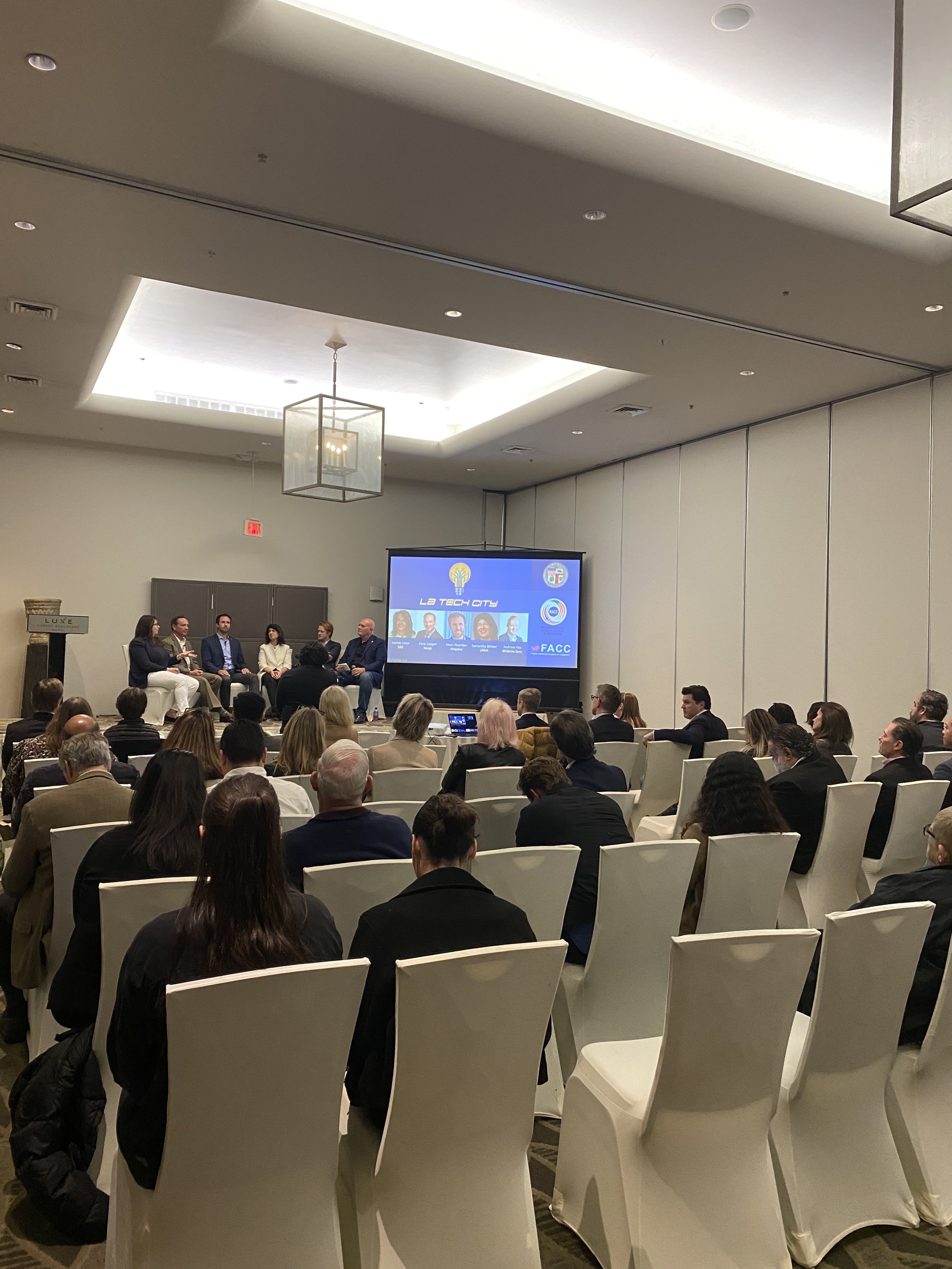Sustainable aviation event in Los Angeles
On February 21st we co-hosted a special evening in the glamorous Luxe Sunset Blvd hotel in Los Angeles with the Norwegian American Chamber of Commerce Los Angeles. Executives from Neste, Scandinavian Airlines, Ampaire, Wideroe, and Los Angeles World Airports shared their insights into the future of aviation and a panel discussion was followed by a reception.
Aviation accounts for approximately 2 to 3 percent of global emissions. These numbers will grow rapidly because air travel is expected to double in 15 years. To fight against climate change, the industry has set a goal to net zero carbon emissions by 2050.
Key points in the panel were that achieving the industry's sustainable goals is a marathon, not a sprint and we are heading towards more sustainable transportation step by step. The most efficient aircraft is needed in every category, which requires open collaboration between companies. Neste, SAS, Ampaire, Wideroe, and Los Angeles World Airports are putting significant effort to reach the industry's sustainability goals but that demands time-consuming investments in the infrastructure.
LA Tech City Nordic Edition panelists. Left to right. Samantha Bricker (Chief Sustainability and Revenue Management Officer, Los Angeles World Airports), Chris Cooper (President, Neste U.S) , Kevin Noertker (CEO, Ampaire), Andreas Aks (CEO, Wideroe Zero) and Jasmin Utter (Scandinavian Airlines, General Manager of Region Americas).
Sustainable aviation fuel is the solution to cut emissions in long-haul flights and it can be used in all already existing aircrafts. Unfortunately, the capacity of producing SAF is not yet enough to meet the demand, and the price is higher than traditional jet fuel.
Smaller electric and hybrid aircraft offer the possibility to connect local communities more sustainable way. These airlines offer passengers more frequent flight options and a way to avoid traffic. Hybrid and electric planes also cause less noise compared to traditional planes which is especially valuable for airports that locate in the heart of cities.
Meanwhile, airports are turning more and more into large energy hubs to meet the growing energy demand and demonstrate their commitment to sustainability by investing in renewable energy.
We want to thank all the panelists and moderator Erik Steigen for your great contribution. Massive thanks also to Neste, and Scandinavian Airlines for the support and all the quests for coming.






